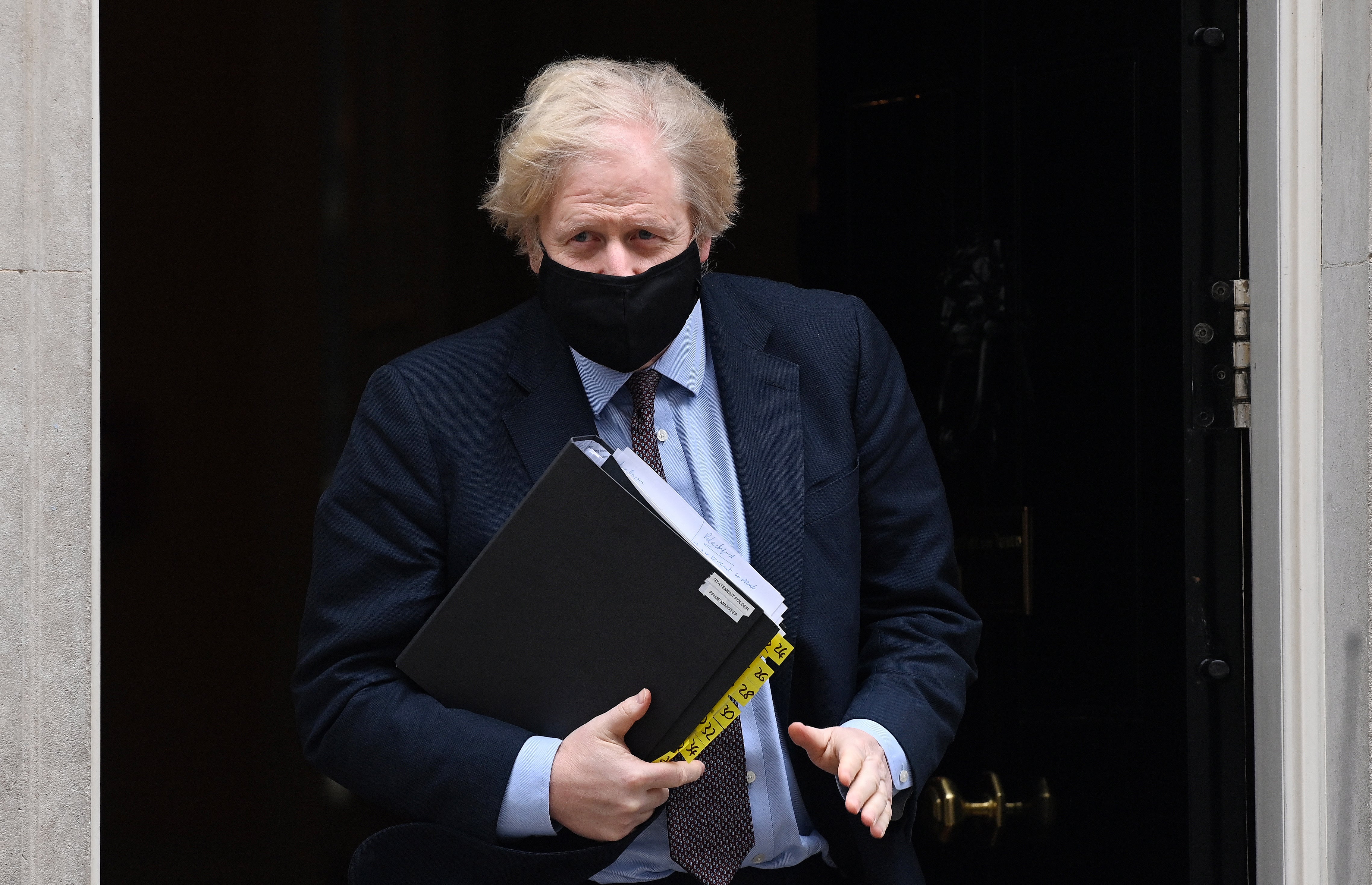More nukes, less aid and a Brexit mentality – the sum of Boris Johnson’s crude politics
The prime minister has learned the lesson of the permanent campaign, and a by-election in Labour-held Hartlepool is a gift, writes John Rentoul


The acres of worthy coverage in advance of the Integrated Review of Security, Defence, Development and Foreign Policy (even the title seemed designed to be as dull as possible) had something missing. What was the point of it all?
Obviously, it serves a bureaucratic purpose in coordinating policy for the Ministry of Defence, the intelligence agencies, and the newly merged Foreign, Development and Commonwealth Office. All is now neatly packaged with everything at right-angles.
But Boris Johnson doesn’t do anything unless it is designed to win the next election. He has learned from Bill Clinton and Tony Blair the importance of the permanent campaign, and in particular of listening to the people who voted for him for the first time.
So the first clue to the politics of the Integrated Review is Brexit. One of its purposes is to set out a foreign and defence policy independent of the EU. In fact, it looks exactly the same as Britain’s foreign and defence policy while we were in the EU, although it allows for a bit of subliminal flag-waving.
When the prime minister’s spokesperson was asked what in the review would not have been possible before Brexit, the answer was that the UK now has its own sanctions policy for holding regimes to account for human rights violations. Yesterday, for example, the UK imposed sanctions on six members of the Assad government in Syria. However, coordinating the sanctions deployed by EU members has always been messy, so no change there either.
Read more:
The crude politics behind the review became clearer today as media attention focused on two aspects. One was the increase in the “nuclear warhead stockpile ceiling” from 180 to 260. The reason for this given in the review is fabulously cloudy, namely: “the evolving security environment, including the developing range of technological and doctrinal threats”. But the political reason is simple: more nukes will embarrass the Labour Party.
Keir Starmer made the sensible point in the Commons that, although he supported the renewal of the Trident nuclear deterrent, he wanted to reduce our nuclear stockpile. But this isn’t about sensible points, or the UK’s obligations under the Nuclear Non-Proliferation Treaty (the government appears to have legal advice that the increase is compatible with the treaty); this is a simple proxy for being “strong on defence”.
Johnson gave the game away in his Commons knockabout, pointing out that Angela Rayner, the deputy Labour leader, and Lisa Nandy, the shadow foreign secretary, voted against renewing Trident in 2016. “Those are the instincts of the Labour Party,” he said: “Weak on defence.”
The other bit of crude politics in the review is the cut in the foreign aid budget. At first it seemed that the story was that Johnson was going to reverse the cut. The only mention of the cut in the review is: “We will return to our commitment to spend 0.7 per cent of gross national income on development when the fiscal situation allows.”
But it takes only a moment to work out that “when the fiscal situation allows” means “never”. Although it took slightly longer to work out that Johnson would be able to get away with it. Andrew Mitchell, the Conservative former international development secretary who is a fierce defender of the 0.7 per cent target, warned the prime minister that “he may be in danger” of breaking the law. The target is laid down in law – the International Development (Official Development Assistance Target) Act 2015 – and changing it would require a vote in the Commons that the government might well lose, as there are many Tories who agree with Mitchell.
However, Johnson replied: “The law makes it very clear that when we have exceptional circumstances ... we are entitled to vary that 0.7 per cent commitment, and that is what we are doing.”
And he is right. If you look up the Act, it says that all a government has to do if it fails to meet the 0.7 per cent target is to make a statement to parliament which refers, “if relevant”, to “economic” or “fiscal” circumstances.
It is crude politics, but it is likely to be effective. The proof of the review came while the prime minister was speaking, when Labour confirmed that Mike Hill, the MP for Hartlepool, would be standing down, triggering the first by-election of this parliament. He held the seat at the general election only because the Brexit Party stood there, and its candidate won almost as many votes as the Tory candidate.
In a by-election in a northern working-class Labour Leave seat, the combination of Keep Brexit Done, more nukes and less foreign aid is well crafted to secure a rare government by-election gain from the opposition.
Join our commenting forum
Join thought-provoking conversations, follow other Independent readers and see their replies
Comments